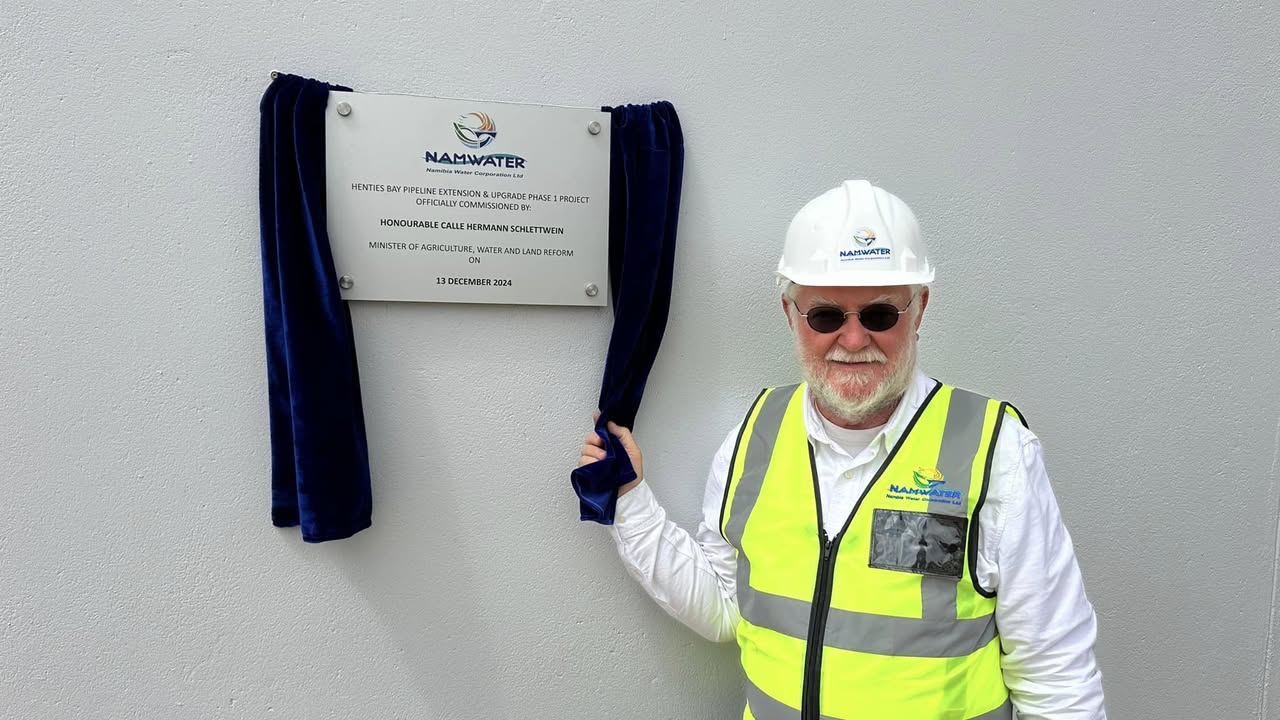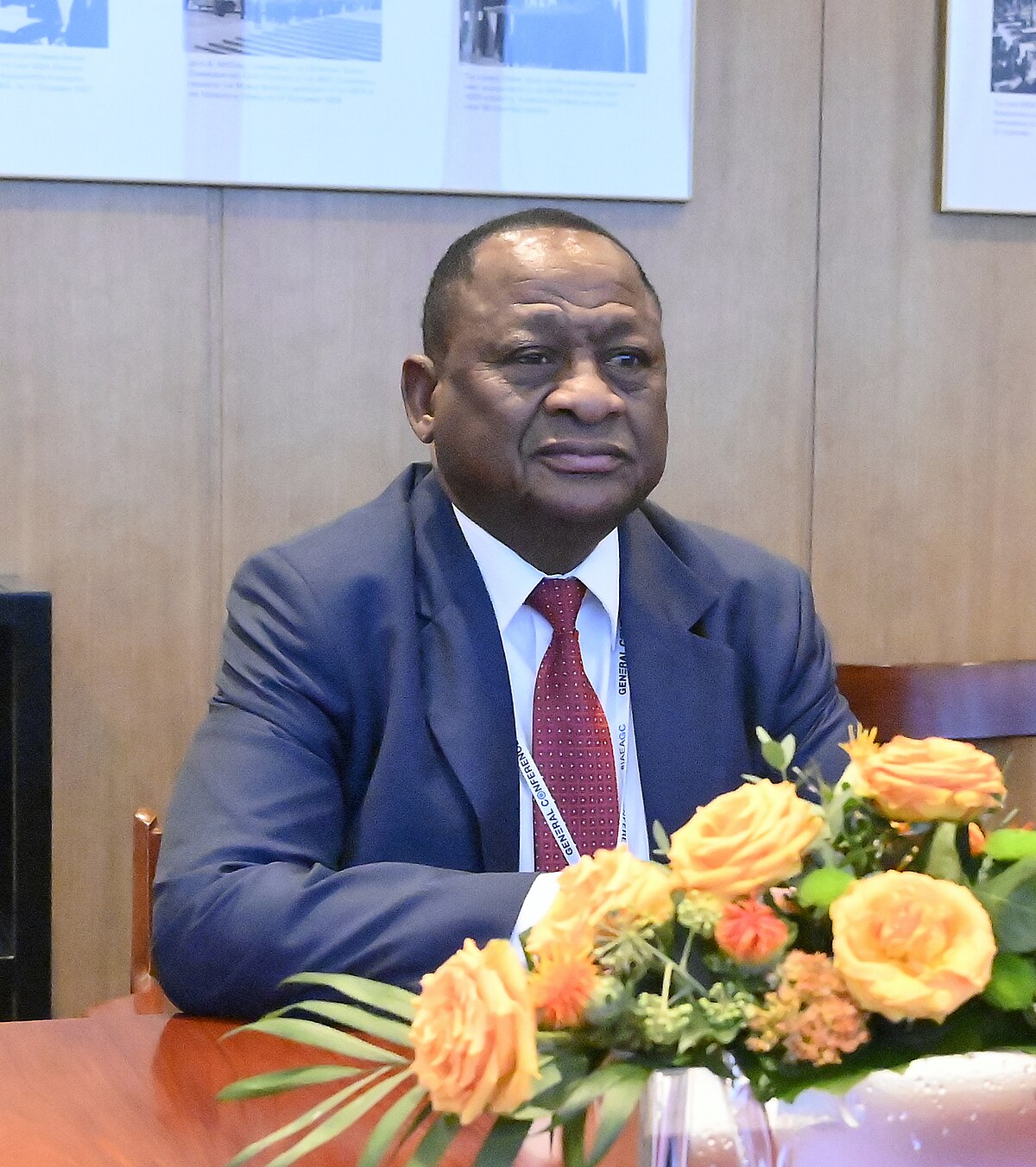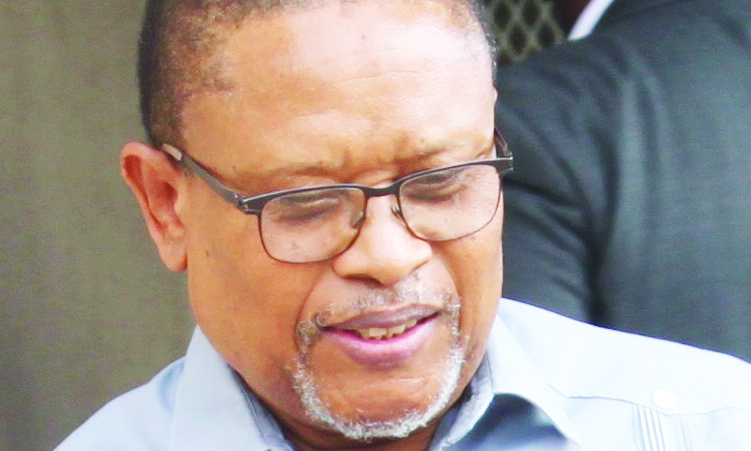“TOO close to call” is an expression that was popularised during the last elections for the US presidency when George W Bush became president by a hair’s breadth.
And might have lost had it not been for the manipulations of his brother in Florida and the verdict of the Supreme Court. This underlines a sobering lesson in Bush’ ascent to the presidency: access to the machinery of power.”Too close to call” is a phrase that seems to be entering Namibian politics in the context of a similarly tense and maybe marginal election, as Swapo prepares to hold its watershed congress to choose its presidential candidate.A host of interviews, most of them given on condition of anonymity, seem to indicate that – at this stage – there is no clear front-runner in the three-horse race.Yet, supporters and campaigners for each of the three candidates were certain, at least until last week, that their candidate would triumph.Presidential hopeful Nahas Angula has claimed that he will take 60 percent of the delegates in the first round.The Minister of Higher Education, Training and Employment Creation said he made this assessment based on talking to delegates in private meetings.A few weeks ago, Bob Vezera Kandetu, a member of former Foreign Affairs Minister Hidipo Hamutenya’s campaign team, said that, by his own estimates, Hamutenya had no equal.In fact, if one were to go by the number of supporters, journalists, well-wishers and curious onlookers who attended his press conference yesterday, Hamutenya is not threatened.But these assessments were made to early in the race.Swapo vice president Hifikepunye Pohamba would have been a write-off, had it not been for President Sam Nujoma’s popularity and heavy-duty support.Pohamba has been conspicuous by his absence.The President has made the running.But the election has become ‘too close to call’ considering that the far northern regions of the former Owambo don’t seem to have aligned themselves solidly behind any one of the three nominees.Some of those interviewed claim the Omusati Region will be won by Angula, slightly ahead of Pohamba, largely because the President hails from there and is revered.Oshana, according to some who claim to be neutral observers, is almost evenly divided between the three candidates.Ohangwena and Oshikoto appear to be divided along ethnic lines, with Angula taking Oshikoto, while Pohamba and Hamutenya are said to share the spoils in Ohangwena – largely inhabited by Kwanyama people.The allegiance of the other regions is now seen as anybody’s guess, despite the fact that Hamutenya had earlier been seen as taking Erongo, Omaheke, Hardap and Karas.Then there are party wings.More than 500 delegates will be at the landmark congress that, according to Swapo Secretary for Information Netumbo Nandi-Ndaitwah, will take place as scheduled today and tomorrow at the Windhoek Showgrounds.The result is expected late on Saturday, and only after that will the uncertainty give way to fact – hair’s breath or ‘too close to call’ a matter then of the recent past.This underlines a sobering lesson in Bush’ ascent to the presidency: access to the machinery of power.”Too close to call” is a phrase that seems to be entering Namibian politics in the context of a similarly tense and maybe marginal election, as Swapo prepares to hold its watershed congress to choose its presidential candidate.A host of interviews, most of them given on condition of anonymity, seem to indicate that – at this stage – there is no clear front-runner in the three-horse race.Yet, supporters and campaigners for each of the three candidates were certain, at least until last week, that their candidate would triumph.Presidential hopeful Nahas Angula has claimed that he will take 60 percent of the delegates in the first round.The Minister of Higher Education, Training and Employment Creation said he made this assessment based on talking to delegates in private meetings.A few weeks ago, Bob Vezera Kandetu, a member of former Foreign Affairs Minister Hidipo Hamutenya’s campaign team, said that, by his own estimates, Hamutenya had no equal.In fact, if one were to go by the number of supporters, journalists, well-wishers and curious onlookers who attended his press conference yesterday, Hamutenya is not threatened.But these assessments were made to early in the race.Swapo vice president Hifikepunye Pohamba would have been a write-off, had it not been for President Sam Nujoma’s popularity and heavy-duty support.Pohamba has been conspicuous by his absence.The President has made the running.But the election has become ‘too close to call’ considering that the far northern regions of the former Owambo don’t seem to have aligned themselves solidly behind any one of the three nominees.Some of those interviewed claim the Omusati Region will be won by Angula, slightly ahead of Pohamba, largely because the President hails from there and is revered.Oshana, according to some who claim to be neutral observers, is almost evenly divided between the three candidates.Ohangwena and Oshikoto appear to be divided along ethnic lines, with Angula taking Oshikoto, while Pohamba and Hamutenya are said to share the spoils in Ohangwena – largely inhabited by Kwanyama people.The allegiance of the other regions is now seen as anybody’s guess, despite the fact that Hamutenya had earlier been seen as taking Erongo, Omaheke, Hardap and Karas.Then there are party wings.More than 500 delegates will be at the landmark congress that, according to Swapo Secretary for Information Netumbo Nandi-Ndaitwah, will take place as scheduled today and tomorrow at the Windhoek Showgrounds.The result is expected late on Saturday, and only after that will the uncertainty give way to fact – hair’s breath or ‘too close to call’ a matter then of the recent past.
Stay informed with The Namibian – your source for credible journalism. Get in-depth reporting and opinions for
only N$85 a month. Invest in journalism, invest in democracy –
Subscribe Now!






